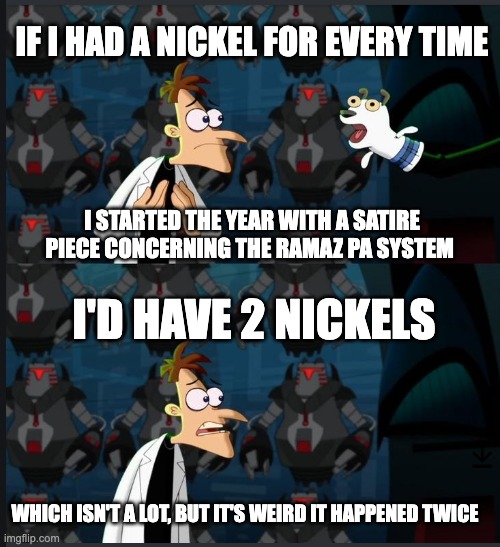Ramaz: Where Consistency is Key? (Part I)
Often, seniors beginning their final full semester of high school cannot help but reflect on the previous four years. As I try to recall memories of my childhood, I tend to merge events together and confuse their exact chronology. However, when it comes to my overall experience at Ramaz, this issue has not presented itself; it’s almost as though each year of our lives on 78th street has defined itself as an individual experience, distinct in my mind from the time surrounding it. As I thought about this seemingly bizarre phenomenon, I began to realize that it actually made sense: each year in Ramaz was so dissimilar from the others that I can vividly recall what happened in each. For example, my freshman year marked Mr. Miller and Dr. Koplan’s exits, as well as the beginning of Rabbi Grossman’s term. Sophomore year signaled the exit of Mrs. Weinstein and the promotion of Rabbi Stochel. Junior year brought the implementation of a new drug policy, attendance system, and the departures of Rabbi Grossman, Dr. Warshall and Mr. Lupinacci.
Do not get the wrong impression: I am not writing to discuss the drama or impact of these changes, nor am I writing to once again bring these issues to light. I am, however, writing to ask a simple yet layered question; has the Ramaz student body, especially senior class, been afforded enough consideration for all of the turmoil they experienced? In many ways, the 12th grade was (and is) Ramaz’s guinea pig, as the school tested attendance rules, administrational structures, dress code guidelines, and other new programs. I believe that all of these changes are positive, and that, today, Ramaz is a better place despite its many issues in recent years. In fact, as Ms. Krupka will point out in Part II of this article, Ramaz has one of the lowest faculty turnover rates (the number of teachers leaving per school year) in the entire Yeshiva League, and the departure of some teachers and administrators is standard.
As a Ramaz senior, I feel as though I am graduating from a reborn version of the institution that I joined in 2016. However, it was not always a smooth ride: when I returned to the same building each September, in many ways, it was unrecognizable from its prior years. In this series of Op-Eds, I plan to sit down with numerous students, faculty and administrators to hear their perspectives on if the Ramaz seniors have been provided with a consistent and cohesive high school experience. I’d also like to discover if the seniors are unique in that they have had four different experiences in just one high school. Through the discovery of these answers, I hope to unveil the rationality behind the student body’s dissatisfaction with Ramaz’s seemingly positive change.



